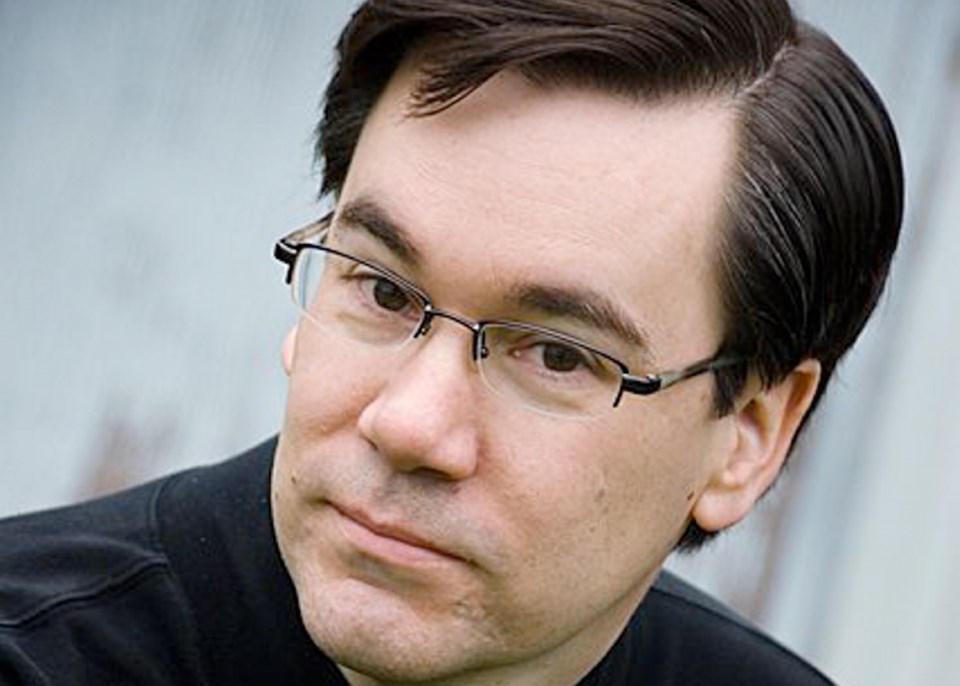What: Victoria Symphony (Classics): Geniusas Plays Brahms
When/where: Sunday, April 28, 2:30 p.m., Farquhar Auditorium (University Centre, University of Victoria)
Tickets: $35-$56. Call 250-721-8480 or 250-385-6515; online at ; in person at the UVic Ticket Centre and the Victoria Symphony Box Office (Suite 610, 620 View St.)
What: The soundtrack from … the music of Leila Lustig
When/where: Monday, April 29, 7:30 p.m., St. Matthias Church (600 Richmond St.)
Tickets: $15. Online at
On Sunday, the superb Russian-Lithuanian pianist Lukas Geniusas will make his Victoria Symphony debut in an all-Brahms Classics Series program conducted by the orchestra’s music director, Christian Kluxen.
Geniusas, 28, a native of Moscow, was a silver medallist in both the 2010 Chopin Competition, in Warsaw, and the 2015 Tchaikovsky Competition, in Moscow, and now has an impressive international concert career.
He has released many CDs, on various labels. The solo repertoire he has recorded includes Beethoven’s Hammerklavier Sonata, Chopin’s Opp. 10 and 25 études and B-minor sonata, Brahms’s Piano Sonata No. 1, Rachmaninoff’s complete preludes and, most recently, in November, Prokofiev’s Second and Fifth Sonatas (the first instalment of a planned complete survey of the Prokofiev sonatas). He has also recorded piano duets, chamber music and concertos (Chopin’s First, Rachmaninoff’s Third, Shostakovich’s First).
Quite apart from the fact that the first six letters of his surname spell “genius,” Geniusas is an interesting and inquisitive musician with an eclectic repertoire. He has played more than 30 concertos, ranging from Bach to Lutoslawski, John Adams and Arvo Pärt, and one of his CDs is devoted to music by three contemporary Russians.
Since 2015, moreover, he has been involved with a philanthropic venture in Toronto, Looking at the Stars, which brings classical music to hospitals, shelters, long-term care facilities, prisons and other institutions.
The first half of Sunday’s program — the orchestra’s last solo-concerto outing of the season — will be devoted to Brahms’s Piano Concerto No. 2. (It was last performed here in January 2015, with Stewart Goodyear as soloist.)
The Brahms Second is one of the richest, widest-ranging, most monumental concertos in the standard repertoire, a work of unusually ample proportions and overtly symphonic ambitions. For one thing, it has four rather than the usual three movements, the “extra” movement (the second) being a dark, driven piece that Brahms, with charming understatement, described as “a tiny, tiny wisp of a scherzo.”
This is a work that seems well suited to Geniusas’s musical personality. Though notoriously rife with technical hurdles, the concerto demands nobility and poetry more than showmanship from its soloist, and Geniusas, though possessed of commanding virtuosity and capable of real bravura, seems by temperament to be anything but a showman. Regardless of the repertoire, he plays with a great deal of nuance and invariably directs his attention primarily to plumbing depths of expression and tone.
There is one other work on Sunday’s program, and, as in a lot of recent Classics programs, it is post-Classical work with a classicizing bent: Brahms’s Serenade No. 2. Scored for a small orchestra (curiously, without violins), this five-movement piece is one of a pair of “practice symphonies” the young Brahms wrote while working up the nerve to tackle his Symphony No. 1, and the music is lightweight, charming and full of allusions to 18th-century music.
On Monday, a special concert will celebrate the 75th birthday of local composer Leila Lustig.
A native of Louisville, Kentucky, Lustig holds degrees from the University of California, Los Angeles, and a doctorate from the University of Wisconsin-Madison. She spent 14 years working in American public radio. Lustig has lived in Canada since 1987, and is an associate composer of the 91ԭ�� Music Centre.
Monday’s concert is sponsored by Augmented Trio Promotions, a partnership of three local musicians who together represent six varied ensembles and promote them on the Island and throughout B.C.
The concert will feature two members of Augmented Trio, flutist Diane Berry and pianist Kathryn Le Gros, along with soprano Marnie Setka-Mooney, clarinetist Nathan Friedman and saxophonist Erik Abbink, the founder and artistic director of Oak Bay Music. (Berry, Friedman and Abbink are themselves composers.)
The program will feature the première of Lustig’s Introductory Remarks, for voice, flute and piano, plus other works written at various times for these specific performers, including the piece from which the concert gets its title, The soundtrack from…, written for Abbink. “This concert is a homecoming in a sense,” says Lustig, who will be on hand at the concert.
The program also includes music composed by Berry, who was mentored by Lustig.



